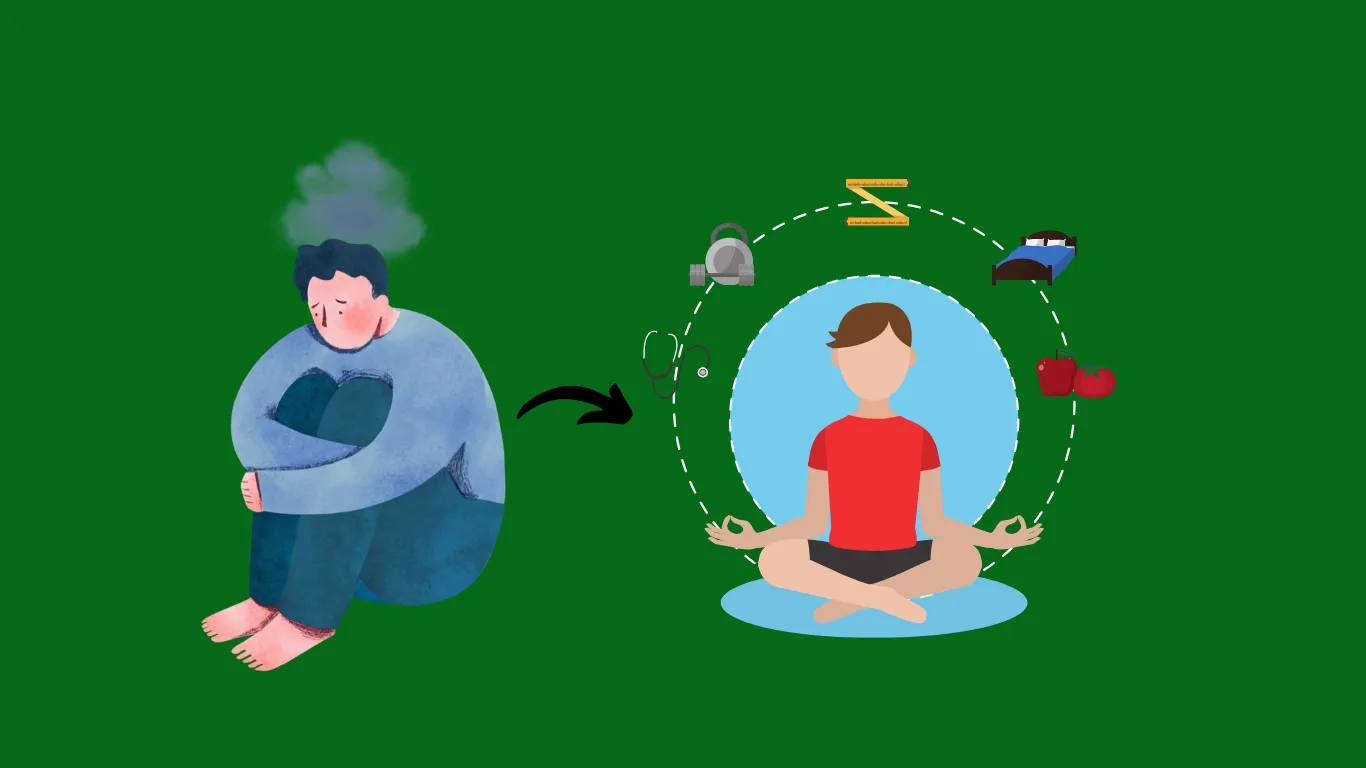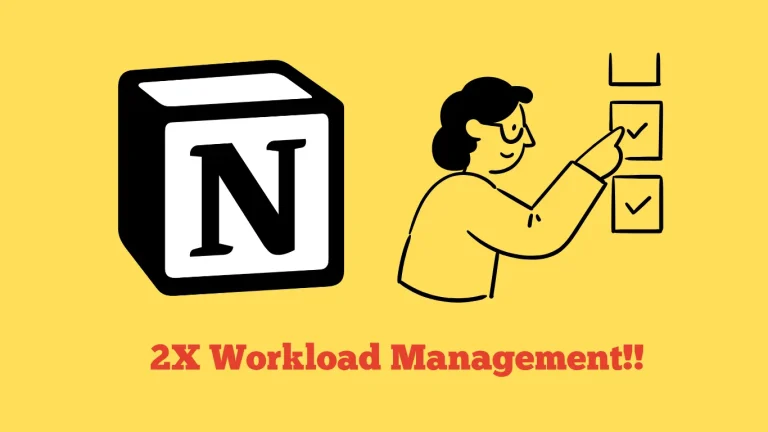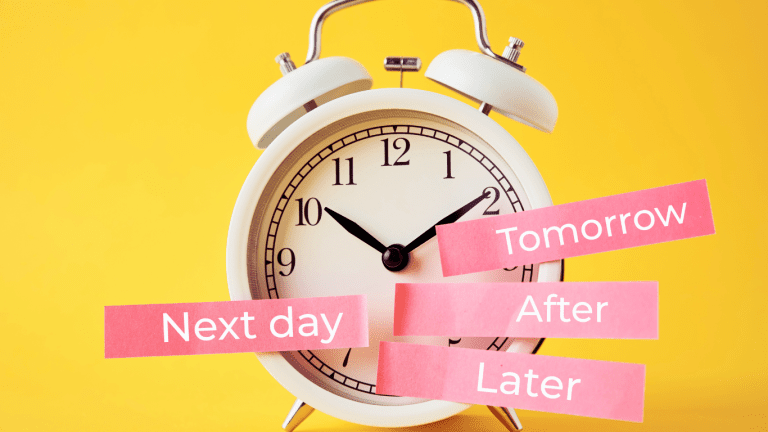We live in a world that’s all about instant results and dramatic changes. It’s easy to fall into the trap of setting huge goals—whether it’s losing weight, mastering a new skill, or achieving success in our careers.
But here’s the thing: big goals can quickly feel overwhelming. When progress isn’t immediate, it’s easy to feel frustrated, lose motivation, or even doubt our abilities.
But what if the real key to success isn’t about aiming for huge, sweeping goals, but about making small, consistent changes every single day?
The truth is, small habits—those tiny, everyday actions—can build up over time and create big transformations. Instead of waiting for overnight success, focusing on these micro habits allows you to build momentum and see lasting change, all without the pressure of perfection.
To help you get started, here are some micro habits you can incorporate into your daily routine:
1. No More “Day Zeros”

In project management, a “day zero” is that planning phase before any real action takes place. It’s that moment when we say, “I’ll start tomorrow” or “I’ll begin next week.” Setting intentions is great, but these “day zeros” can often hold us back.
We get caught in this loop of waiting for the “perfect” time to start, which only leads to procrastination and more self-doubt. And the longer we wait, the harder it becomes to take that first step.
So here’s the mindset shift that can break that cycle: no more “day zeros.” Instead of waiting for a future start date, let’s make progress today—even if it’s just one small action.
As the saying goes, “Today is yesterday’s promise of ‘I’ll do it tomorrow.’” Even if it’s almost the end of the day, there’s always time to take one small step.
Write one sentence, do one push-up, prep one meal. It’s not about perfection—it’s about progress. That tiny action is far better than doing nothing at all. By focusing on these small, achievable steps, you build a habit of consistent action, leaving perfectionism behind.
2. The Power of Gratitude Over Apologies

So many of us are conditioned to apologize constantly, even for things that don’t actually require an apology. Whether it’s saying “sorry” for taking up space, being a little late, or talking too much, we’ve become so accustomed to downplaying ourselves.
We apologize for just being human, thinking it’s necessary to say sorry for things that aren’t even our fault. But what if, instead of apologizing, we could replace those words with “thank you”?
Shifting from “I’m sorry” to “thank you” can really change how we see ourselves. For example, instead of saying, “Sorry I’m late,” try saying, “Thank you for waiting for me.” This tiny shift allows us to see our value and shows respect for others’ time, instead of getting stuck in a place of guilt. It’s empowering to say “thank you”—it reminds us of our worth and helps us feel more confident.
When it comes to compliments, many of us have this habit of brushing them off, thinking that downplaying praise is somehow more modest. But when we reject compliments, we’re rejecting someone’s kindness.
Instead of saying, “Oh, it’s nothing” or “I don’t deserve that,” try simply saying “thank you.” This allows you to accept the praise with grace, and it helps the giver feel valued too. Not only does this boost your own self-esteem, but it also strengthens your relationships by fostering positivity.
Gratitude over apologies is such a simple yet powerful way to enhance how we view ourselves and interact with others.
3. Cherishing Simple Pleasures

In the chaos of our busy lives, we often overlook the little moments that bring us true joy. We’re so focused on reaching the next big goal or milestone that we miss out on the beauty of the present moment.
But what if we could slow down, take a breath, and appreciate the small pleasures that surround us every day? These tiny moments, though often overlooked, can hold the most meaning if we choose to see them.
Cherishing these simple pleasures is all about pausing to notice the little things—the warmth of the sun on your face, that first sip of coffee in the morning, or the sound of laughter from someone you love.
One of my favorite habits is vocalizing these moments, inspired by Kurt Vonnegut’s uncle, who would say, “If this isn’t nice, I don’t know what is” whenever something beautiful or joyful happened. I find myself saying this when I’m enjoying the sunshine, sipping my morning coffee, or watching a beautiful sunset.
By expressing gratitude for these simple joys, we not only ground ourselves in the present, but we also deepen our connection with the world around us. It’s a way of celebrating life’s everyday magic.
Happiness doesn’t always have to come from major milestones—it’s often found in the quiet, fleeting moments we tend to overlook. Taking the time to vocalize gratitude for these small joys helps us shift our mindset, encouraging a deeper appreciation for life itself.
4. Reframing Stress
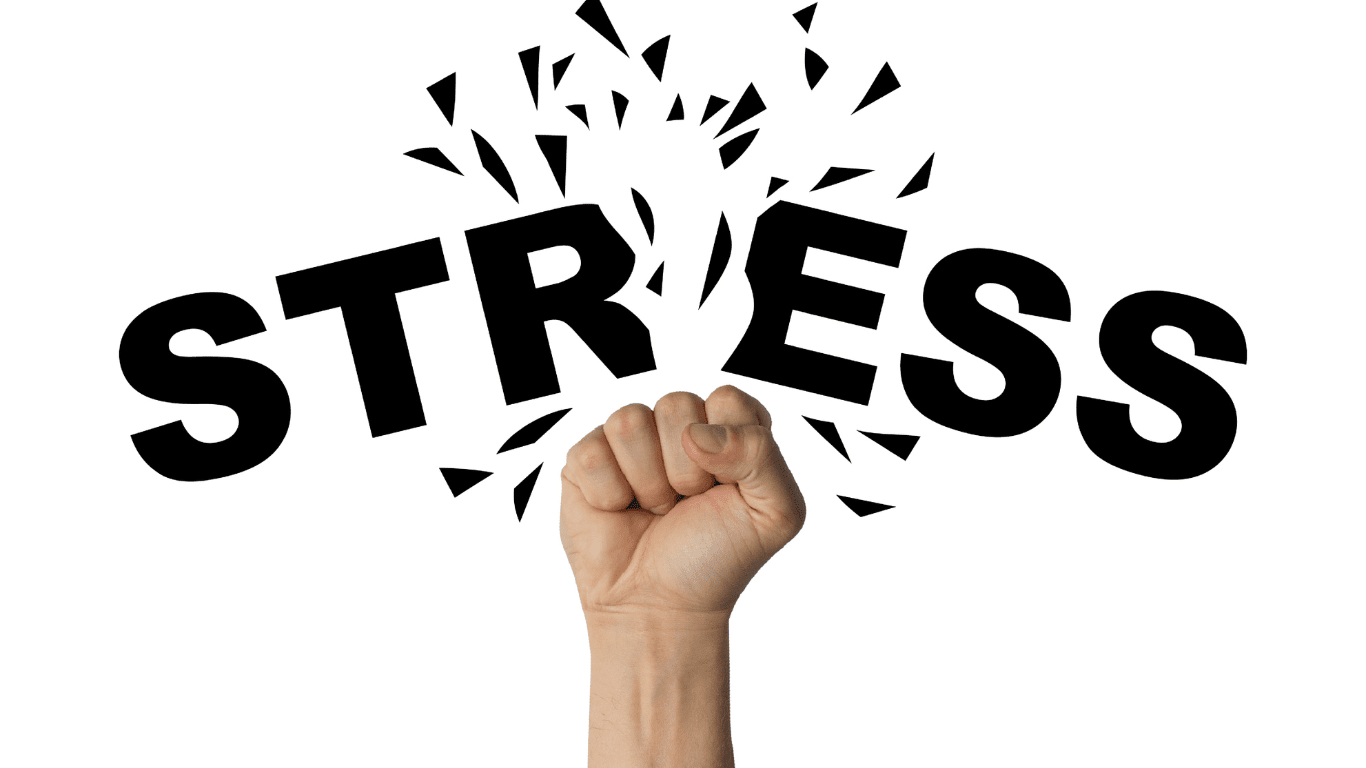
Stress is often painted as a villain in our lives, something we should avoid at all costs. Whether it’s tight work deadlines or personal struggles, we’ve been conditioned to view stress as harmful.
But what if we could change our perspective on stress? Instead of seeing it as something that holds us back, we could embrace it as a force that prepares us to take action and perform at our best.
Research has shown that how we perceive stress can greatly impact how it affects us. A fascinating study by psychologist Kelly McGonigal, author of The Upside of Stress, revealed that individuals who viewed stress as helpful experienced better outcomes when facing stressful situations.
In one study, participants were told that their stress response—like increased heart rate and rapid breathing—was actually helping them perform better. When they reframed stress as a source of energy, they felt more focused, confident, and performed better.
The physiological response to stress isn’t necessarily harmful. In fact, it helps prepare us to meet challenges head-on. Stress triggers the release of hormones like adrenaline and cortisol, which keep us alert, energized, and focused. By reframing stress in a positive light, we can turn our body’s natural response into an ally, rather than something to fear.
When we shift our mindset and see stress as a helpful force, it changes how we respond to it. Rather than feeling overwhelmed, we can tap into the energy and focus that stress provides.
This simple shift in perspective reduces anxiety, boosts our performance, and leads to better results in both our personal and professional lives. Reframing stress doesn’t just make it manageable—it allows us to thrive in high-pressure situations.
5. The Importance of Pausing Before Reacting
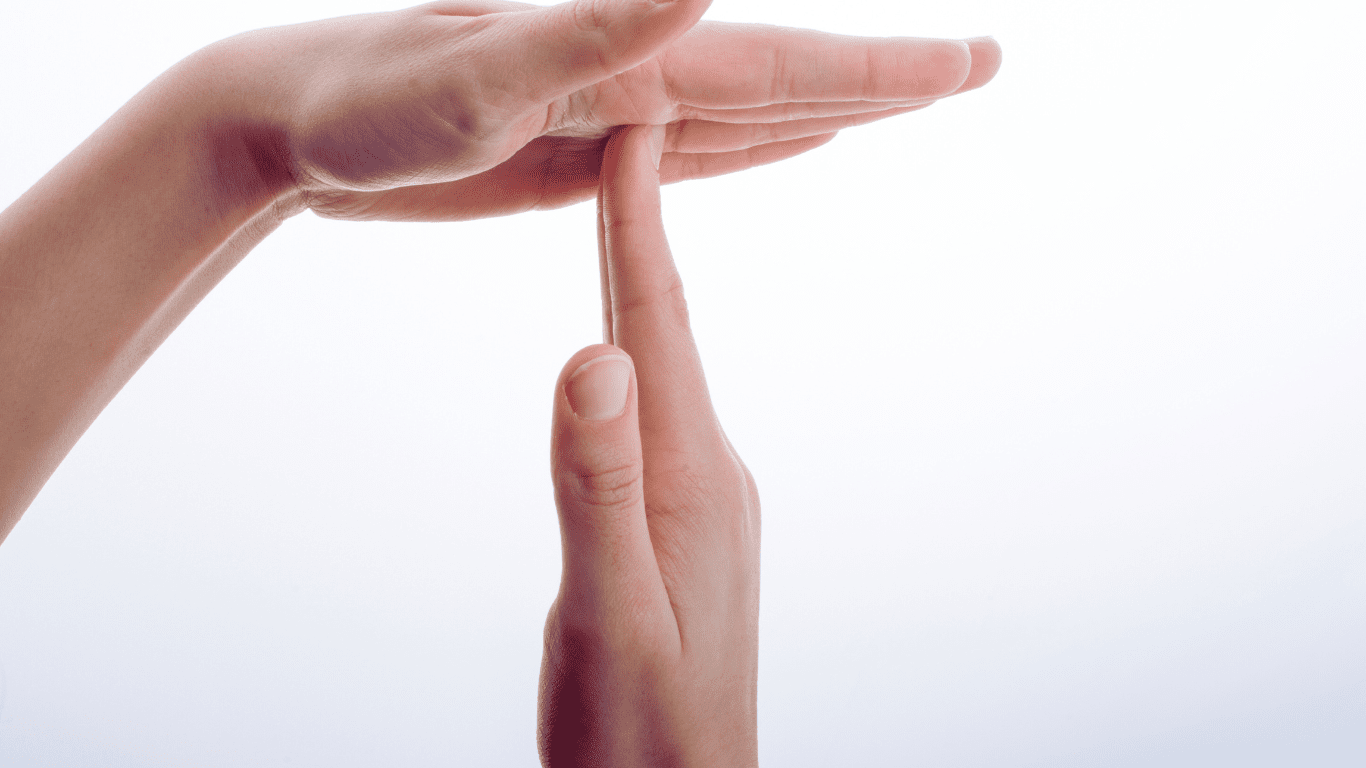
In our fast-paced world, it’s easy to react impulsively—whether it’s to a surprising comment, a change in plans, or a stressful situation. However, quick reactions can lead to miscommunication, misunderstandings, and decisions we might regret. Taking a brief moment to pause before we respond can have a major impact on our communication and relationships.
By taking a breath and giving ourselves space to process, we allow ourselves time to reflect. This pause lets us respond thoughtfully instead of reacting out of frustration or emotion. It gives us the chance to choose our words carefully, consider others’ perspectives, and communicate more clearly and empathetically.
A simple deep breath can slow down our emotional responses and give us the clarity we need to make better decisions, whether in personal conversations or professional settings.
Mindfulness and meditation play a huge role in cultivating this pause. These practices encourage us to observe our thoughts and feelings without judgment, helping us become more aware of our internal reactions.
Through meditation, we learn to sit with our emotions instead of acting on them immediately, which helps us stay calm and composed in challenging situations.
Mindfulness brings us into the present moment, reducing the impulse to react and promoting a more thoughtful, intentional response.
By weaving mindfulness and meditation into our daily routines, we can develop the ability to pause, breathe, and respond with intention. This simple habit not only enhances the quality of our communication but also strengthens our relationships and gives us better control over our emotional reactions.
6. Meditation and Mindfulness for Everyday Life

Meditation and mindfulness are transformative practices that cultivate inner peace, focus, and emotional well-being. Even with a busy lifestyle, incorporating these practices can dramatically enhance how we manage stress, stay present, and improve our overall quality of life.
While many people associate meditation with long hours of silence, it doesn’t have to be time-consuming or complicated. In fact, just a few minutes of mindfulness each day can create noticeable improvements.
The benefits of meditation and mindfulness are extensive. Consistent practice has been shown to reduce stress, improve concentration, boost self-awareness, and promote emotional balance.
Through mindfulness, we learn to observe our thoughts and feelings without judgment, helping us respond to life’s challenges with calm and clarity. Meditation, too, enhances our ability to remain anchored in the present moment, alleviating anxiety about the past or future.
Incorporating mindfulness into a busy life is easier than you might think. You don’t need hours in your day to meditate. Simple practices, such as taking deep breaths, being mindful while eating, or pausing during your workday to check in with yourself, can all make a significant impact.
For those who prefer a more structured meditation routine, guided sessions can provide the focus and direction needed to get started.
By weaving mindfulness and meditation into our everyday routines, we can approach life’s challenges with greater ease, fostering a sense of calm and focus that enhances our well-being. And with tools like Headspace, starting and maintaining a mindful practice has never been more accessible.
Small Habits, Big Change
As we’ve explored, small daily habits, or “micro habits,” can have a profound effect on our lives. It’s easy to get caught up in the idea of making big, dramatic changes, but lasting transformation often stems from the tiny, consistent actions we take every day.
Whether it’s reframing stress, pausing before reacting, or practicing gratitude, these micro habits, when cultivated over time, lead to significant shifts in our mindset and behavior.
True progress isn’t about perfection or immediate results—it’s about committing to small, steady steps that align with our long-term goals.
The beauty of micro habits lies in their simplicity and manageability. They are easy to integrate into our daily lives yet powerful enough to create lasting change. By making these small shifts, we set ourselves up for success, nurturing habits that support our mental, emotional, and physical well-being.
Let’s continue to inspire one another to embrace the power of small changes and create meaningful transformations together.
FAQs
What are the benefits of mindfulness and meditation?
Mindfulness and meditation reduce stress, improve focus, and enhance emotional balance, helping you stay calm and present.
How do I incorporate mindfulness into my daily life?
Practice mindfulness while eating, walking, or doing chores. Take a few moments each day for deep breathing.
How can I start meditating if I’m a beginner?
Start with 5-10 minutes of focused breathing. Use apps like Headspace for guided sessions.
What are micro habits, and how do they lead to big changes?
Micro habits are small, daily actions that build up over time, leading to lasting change.
Can mindfulness and meditation help with stress management?
Yes, they help reduce stress by promoting calm and better emotional control.

Shahariar Shahed is a mental health and productivity writer with a background in business and digital marketing. He researches evidence-based strategies for motivation, mental well-being, and self-improvement. Shahariar is also an Aspire Leadership Program alumni and a passionate advocate for lifelong learning. Follow him on Instagram

